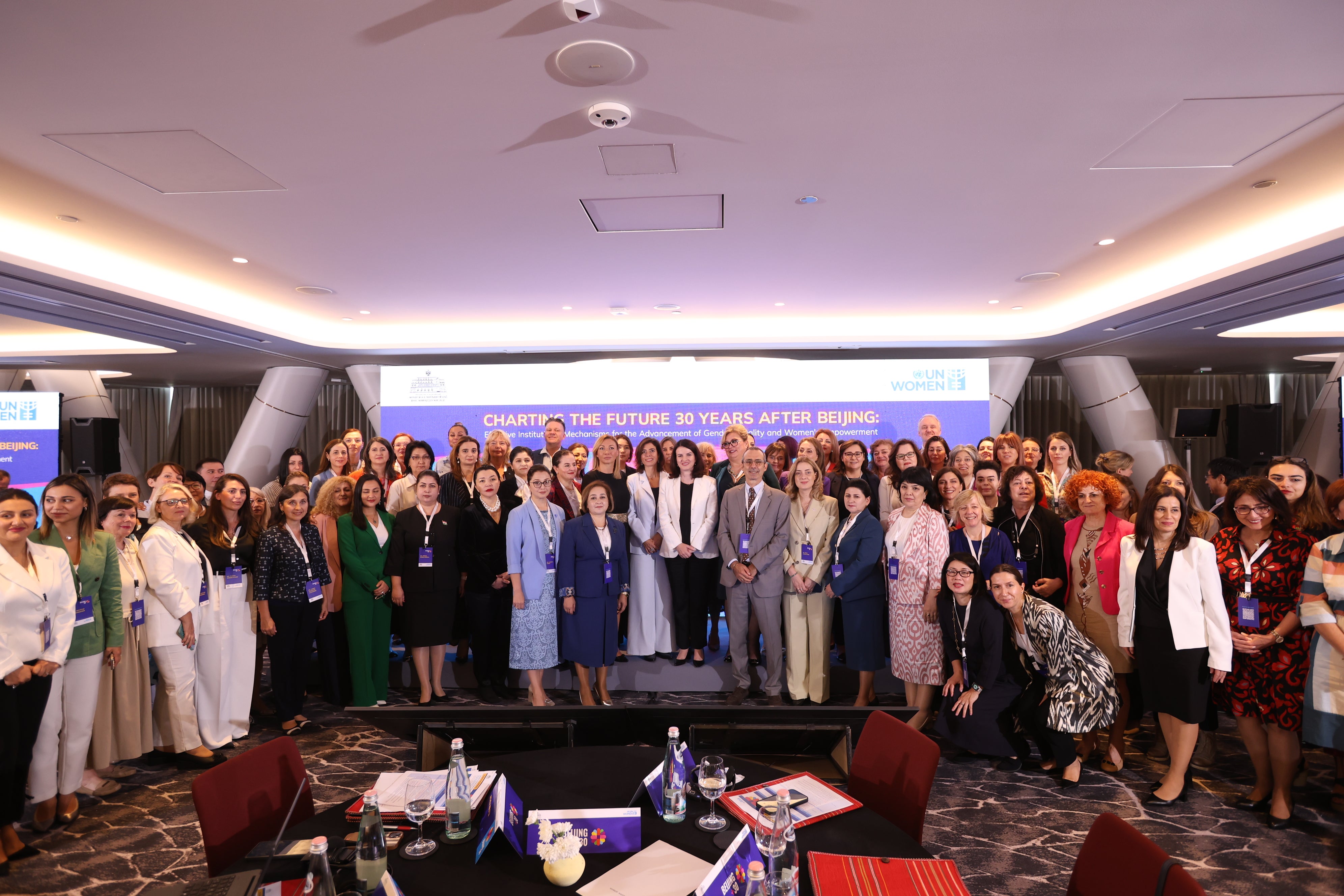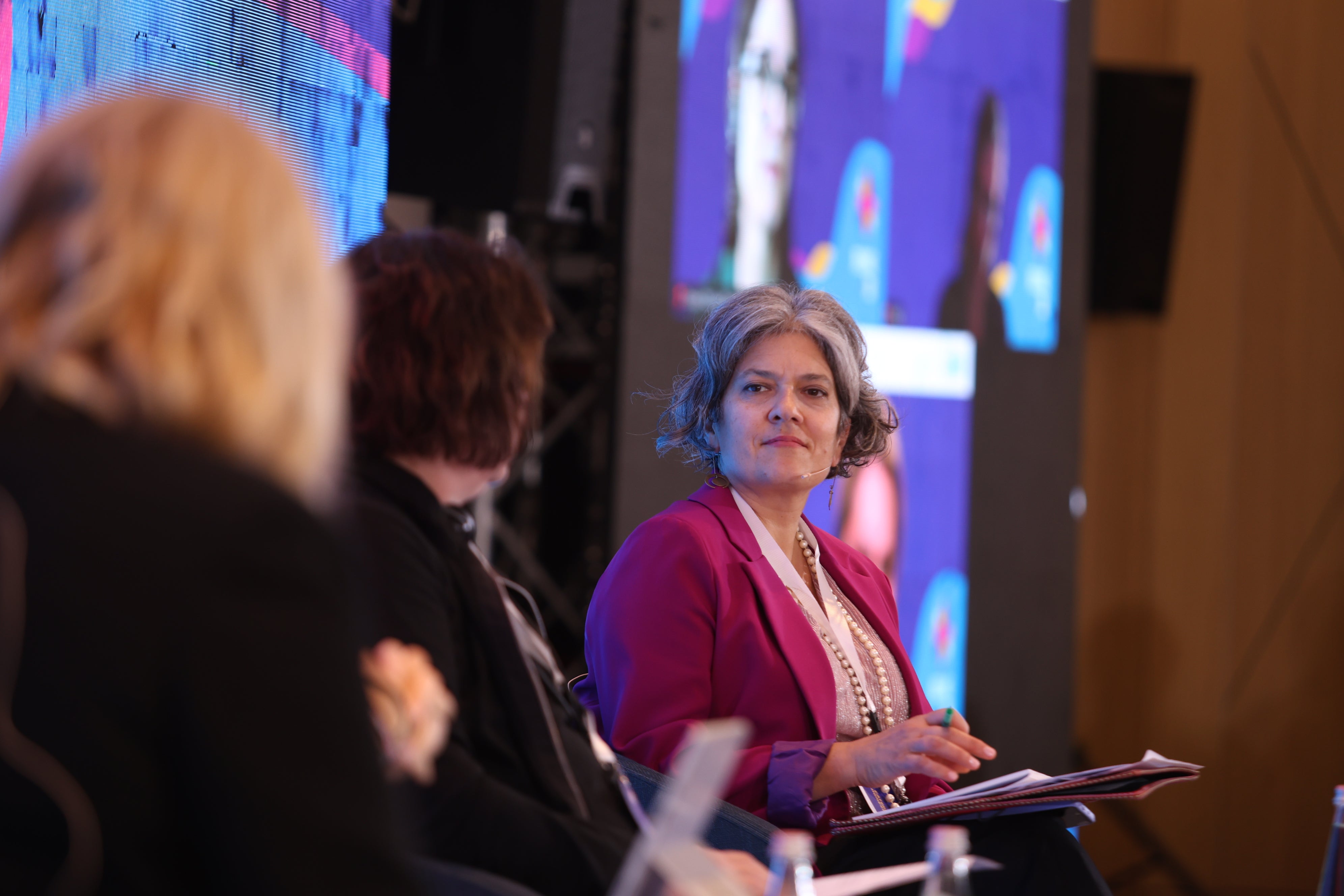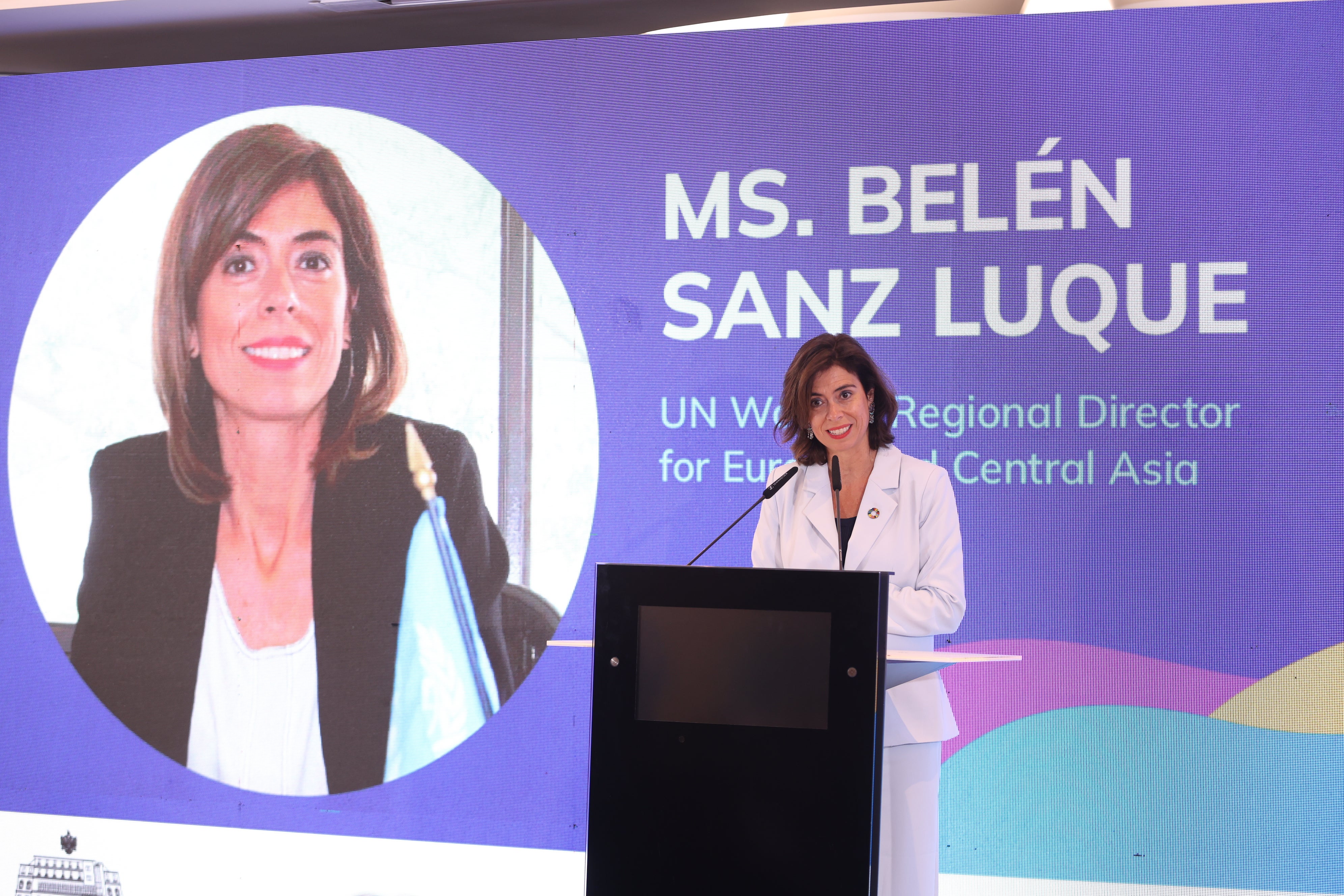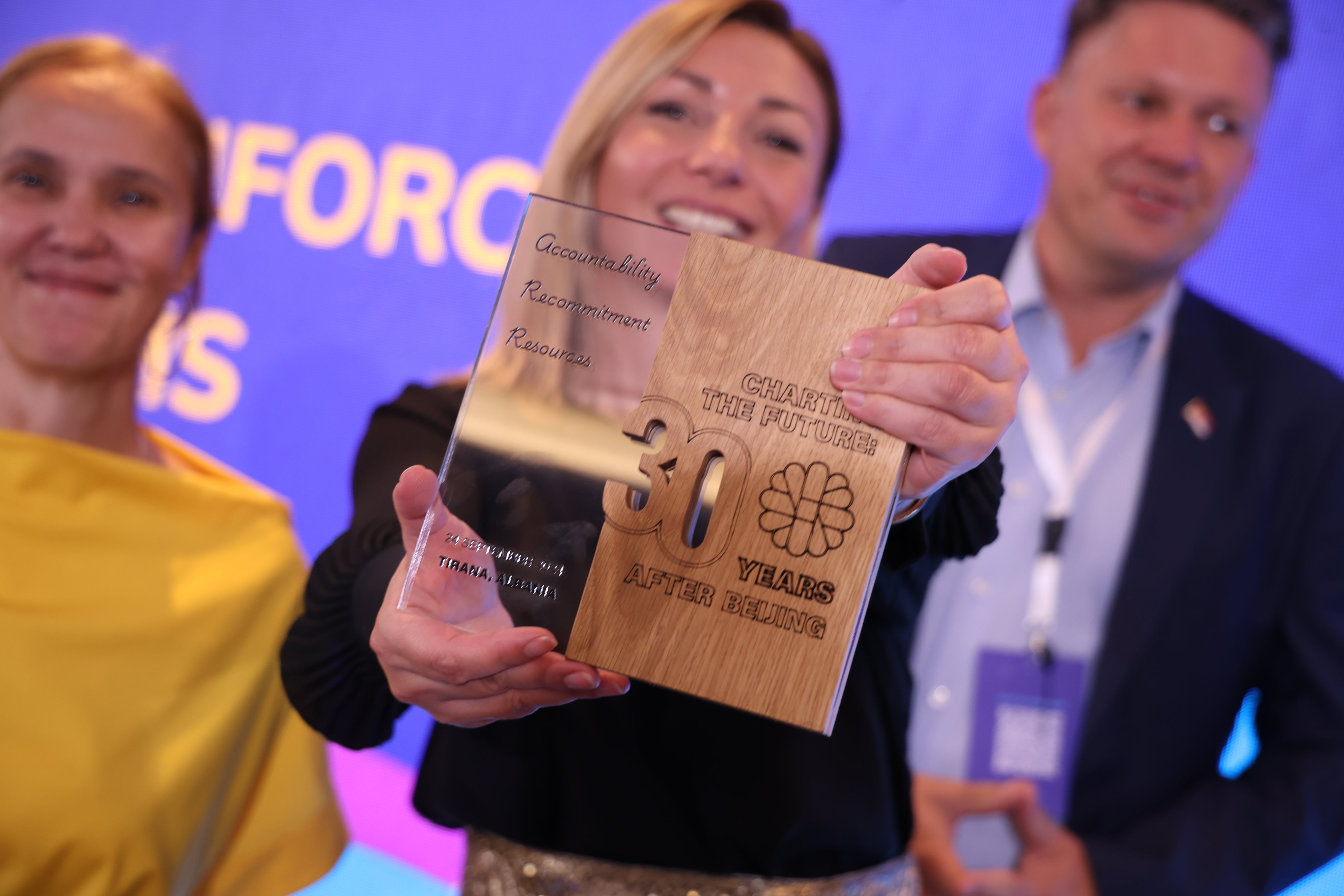Institutional mechanisms from the region place gender equality at the heart of their work
Date:

In a groundbreaking event, delegates from Europe and Central Asia committed to accelerating progress on gender equality and making the lives of women and girls across this region better. The international conference “Charting the Future 30 Years after Beijing: Effective Institutional Mechanisms for the Advancement of Gender Equality and Women's Empowerment” brought together over 80 officials from across Europe, Central Asia, and beyond1.
The event, organized by the UN Women Regional Office for Europe and Central Asia in partnership with the Government of Albania, contributes to the global review of the Beijing Declaration. This review will take place during the 69th session of the Commission on the Status of Women. Focusing on assessing progress in implementing the Beijing Declaration and Platform for Action, as well as the outcomes of the 23rd special session of the General Assembly, the conference highlighted effective institutional mechanisms as the driving force behind sustainable gender equality strategies, emphasizing their critical role in advancing women's rights - a key area of focus in the Beijing Declaration and Platform for Action.
“We stand at a pivotal moment,” said Nyaradzayi Gumbonzvanda, UN Women Deputy Executive Director for Normative Support, UN System Coordination and Programme Results. “As the UN General Assembly is meeting to shape the future, the 30th anniversary of the Fourth World Conference on Women and the adoption of the Beijing Declaration and Platform for Action gives us the compass of the work that we do on advancing gender equality, the empowerment and rights for all women and girls,” concluded UN Women Deputy Executive Director.
The conference provided a powerful platform for discussions about achievements, challenges, and future priorities of institutional mechanisms dedicated to gender equality. Delegates exchanged ideas on how to strengthen national infrastructure, boost policy coordination, and build stronger partnerships across local, national, and global levels.

Powerful pledges were made by the participants in critical areas:
- Mainstreaming gender perspectives
- Combating gender-based violence
- Strengthening gender-responsive budgeting
- Promoting women’s political participation
- Enacting legislative reforms
- Empowering women economically
- Enhancing gender-sensitive data collection
Albana Koçiu, Minister of Health and Social Protection of Albania, expressed pride in hosting this landmark event. “We are honored to host this international conference where institutional mechanisms reaffirm their commitments to the full implementation of the Beijing Platform for Action. Albania remains determined to sustain and accelerate progress on gender equality, partnering with civil society, the private sector, and international actors to achieve the vision set forth 30 years ago.”
Belén Sanz Luque, UN Women Regional Director for Europe and Central Asia, highlighted the significance of this moment: “This conference allows us to learn about good practices for institutional mechanisms to advance gender equality and also to discuss where the challenges rely, so that we can work together to chart a different future for women and girls, using the historic momentum of Beijing+30 to turn commitment into action.”

Youth voices were also front and center, with Dea Nini, a human rights defender from Albania, emphasizing the importance of meaningful involvement. “Gender equality requires more than just policies - it demands true representation. As young leaders, we are not just participants; we are changemakers. Our voices must be part of shaping policies that reflect the realities of all, especially the younger generation.”
Effective institutional mechanisms are the backbone of sustainable gender equality strategies. These bodies – whether ministries, agencies, commissions, or councils - are essential for crafting, implementing, and evaluating gender policies, holding governments accountable, and ensuring women’s rights remain a priority across Europe and Central Asia.

The Beijing Declaration and Platform for Action, adopted in 1995 during the Fourth World Conference on Women, remains the most visionary blueprint for gender equality, empowerment, and rights of women and girls.
_______
Check the event page on eca.unwomen.org, where you can see the agenda and speaker bios.
Join the conversation: Follow: @unwomeneca on Twitter, Instagram, LinkedIn and Facebook and share your messages.
1Albania, Armenia, Azerbaijan, Belarus, Belgium, Bosnia and Herzegovina, Canada, Croatia, Georgia, Kazakhstan, Kyrgyzstan, Kosovo2, Montenegro, North Macedonia, the Republic of Moldova, Serbia, Spain, Sweden, Tajikistan, Uzbekistan.
2References to Kosovo should be understood to be in the context of UN Security Council Resolution 1244 (1999).